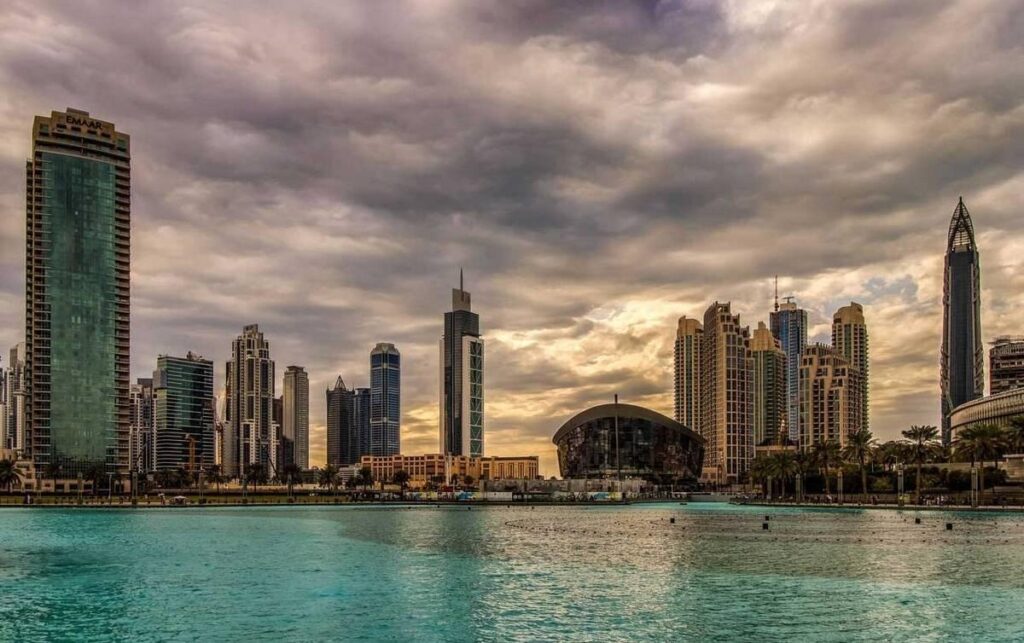The recent floods in Dubai, UAE, have resulted in substantial damage to homes, vehicles, and businesses. Numerous residents are now struggling with the complicated process of claiming insurance to recover from these losses due to their lack of knowledge, understanding and experience in this field. If you have been affected by the floods and are covered by flood insurance and comprehensive insurance, this blog post can guide you in understanding your coverage and also navigate the claims process. This guidance and knowledge will assist you in obtaining insurance claims for damaged cars, property, value goods or business disruption.
Understanding Your Flood Insurance Coverage:
Standard flood insurance policies in Dubai typically cover damage caused by rising flood water. However, there are important distinctions for different types of property:
Homes:
Flood insurance typically covers damage to the structure of your building and its contents, including detached garages and carports. Review your policy for specifics on personal belongings like furniture and appliances.
Cars:
Comprehensive coverage generally includes protection against flood damage, but it’s important to review your policy carefully for any exclusions or limitations regarding the extent or types of flood damage covered, such as distinctions between rising floodwater and storm surge. It’s worth noting that insurance companies have wide discretion in determining claims, particularly when assessing whether damage was intentionally caused by driving through floodwaters. if your car is stalled on a flooded road, it’s advisable not to try to start it. Doing so could increase the risk of engine damage and potentially impact your car insurance claim.
Businesses:
Business flood insurance may cover damage to your building, equipment, and even loss of income due to business interruption. Review your lease agreements for any specific responsibilities regarding flood damage.
It’s crucial to remember that flood insurance policies may have exclusions. These can vary depending on the insurer, so be sure to review your specific policy details. Common exclusions might include damage caused by:
- Sewer backups or drain overflows.
- Storm surge or wind damage (may be covered under separate homeowner’s or commercial property insurance)
- Ground movement or earthquake.
Filing a Flood Insurance Claim:
Here’s a general guideline to follow when filing a flood insurance claim in Dubai:
- Contact your insurance company as soon as possible. There may be deadlines for filing claims after a flood event.
- Document the damage thoroughly. If possible, take photos and videos of the damage, including flood water levels; for cars, take pictures of both the interior and exterior damage.
- Keep receipts for any temporary repairs or flood-related expenses.
- File a formal claim with your insurance company. They will provide you with a claim form and specific instructions on what documentation is required.
Cooperate with your insurance adjuster. The adjuster will inspect the damage and assess your claim. Be sure to be available to answer any questions they may have.
When filing an insurance claim for rain-damaged cars in the UAE, it’s important to have your claim certified by the police. This certification is required by insurance companies and serves as official documentation of the damage. Police apps, such as those offered by Dubai Police, Abu Dhabi Police, or Sharjah Police, have simplified the process of certifying insurance claims for vehicle damage. By downloading the relevant police app, reporting the incident, providing details and supporting documents, and receiving certification through the app, you can conveniently and efficiently process your claim without the need to visit a police station in person.
Common Claim Denials and Dispute Resolution:
There are a few reasons why your flood insurance claim might be denied. Some of the most common include:
- Flood damage is not covered by your policy. Review your policy exclusions carefully, especially for cars (e.g., driving through floodwaters).
- Failure to file a claim on time. Be aware of any deadlines for filing claims.
Insufficient documentation. Make sure you have all the necessary paperwork to support your claim.
If your claim is denied, you have the right to appeal the decision. The specific process for appealing a denial will vary depending on your insurance company. Here are some general steps:
- Review the denial letter carefully. Understand the reason for the denial.
- Gather any additional documentation that may support your claim.
- Submit a formal appeal to your insurance company. This should be done in writing, and details should be provided as to why you believe the decision should be overturned.
Legal Considerations for Businesses:
Business owners with flood damage should be aware of some specific legal considerations when filing a claim beyond the standard claims process.
Business interruption coverage:
Some policies offer coverage for lost income due to a flood event. Review your policy details carefully.
Commercial property insurance:
This may cover damage to your building, equipment, and inventory that is not covered by flood insurance.
Dispute Resolution:
In the UAE, the Insurance Authority (IA) regulates the insurance industry, overseeing licensing, compliance, and enforcement. The main legislation governing insurance is Federal Law No. 6 of 2007, which establishes the IA and regulates insurance operations. This law sets out rights and obligations for insurers and insured parties. Insurance disputes may also be governed by the UAE Civil Code and Commercial Code, which establish contract and commercial transaction principles.
However, Sanadak is the first legally established independent Ombudsman Unit, with a focus on safeguarding consumers rights and resolving complaints that arise from dealings with Financial Institutions and Licensed Insurance Companies.
Established in 2023, Sanadak is mandated to resolve complaints between consumers and Licensed Financial Institutions (LFI) and Insurance Companies with impartiality, fairness, and transparency. As the first financial Ombudsman Unit in the Middle East and North Africa (MENA) region, Sanadak aims to set the benchmark for excellence in consumer complaints resolution. It strives to achieve this goal through clear, effective, and transparent processes, ultimately safeguarding trust in the United Arab Emirates’ financial sector. Sanadak’s mission is to establish a financial resolution ecosystem based on trust and fair complaint resolution mechanisms for insurance and financial claims.
Disclaimer:
This blog post is intended for general informational purposes only and should not be construed as legal advice. For specific questions regarding your flood insurance coverage and the claims process for your home, car, or business, consult with a qualified legal professional in Dubai.

Suneer Kumar leads the corporate and commercial team. He is active across sectors, including, government and quasi government, real estate, employment, technology, and oil and gas
